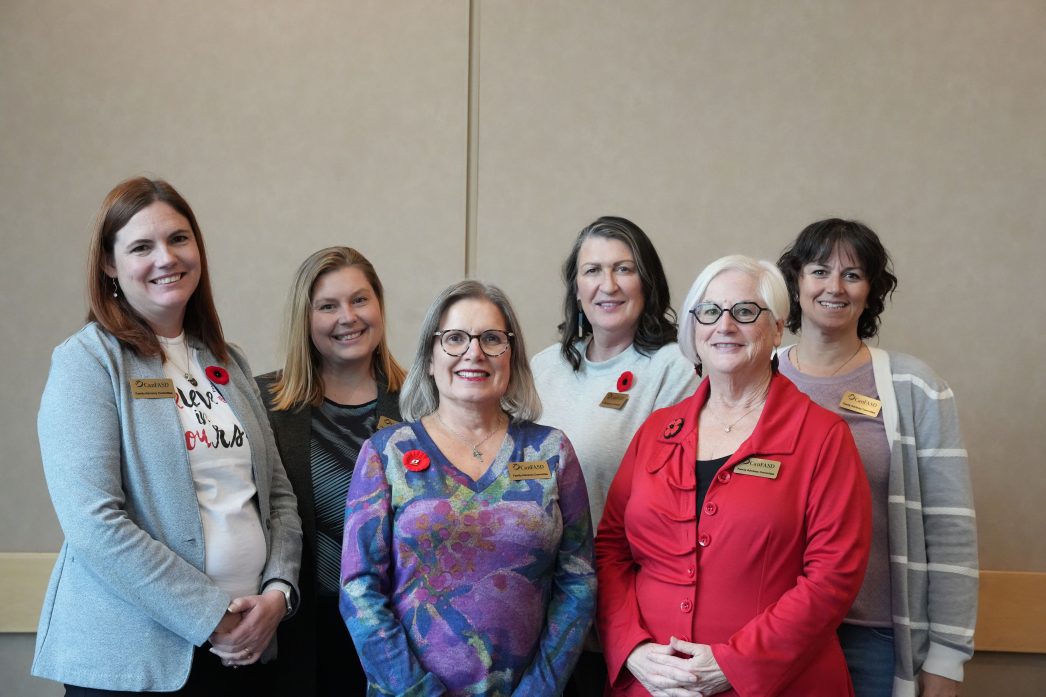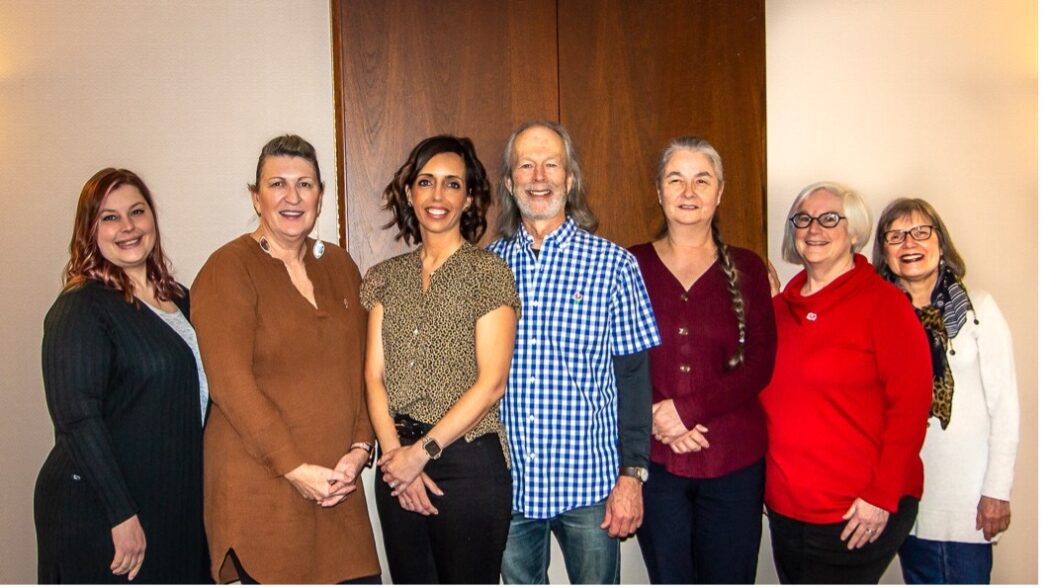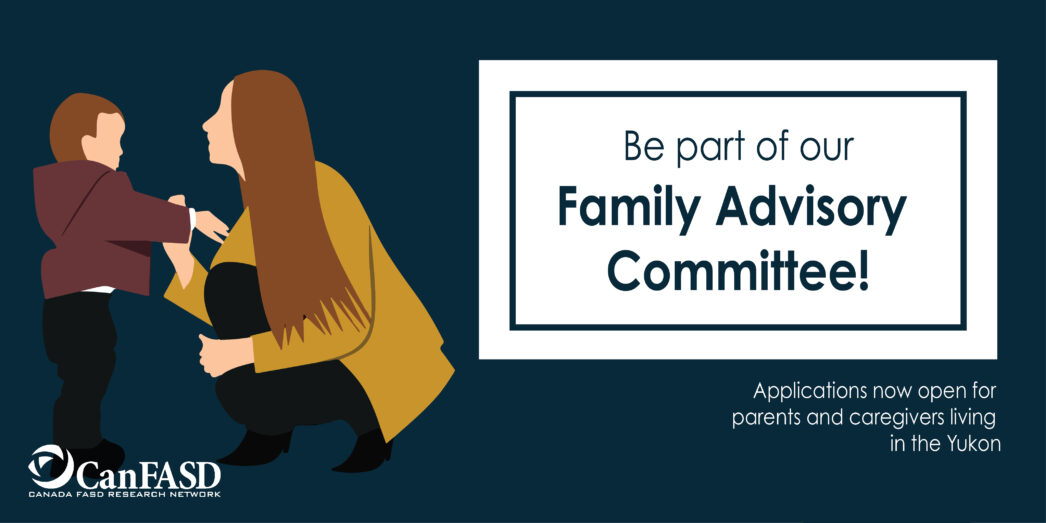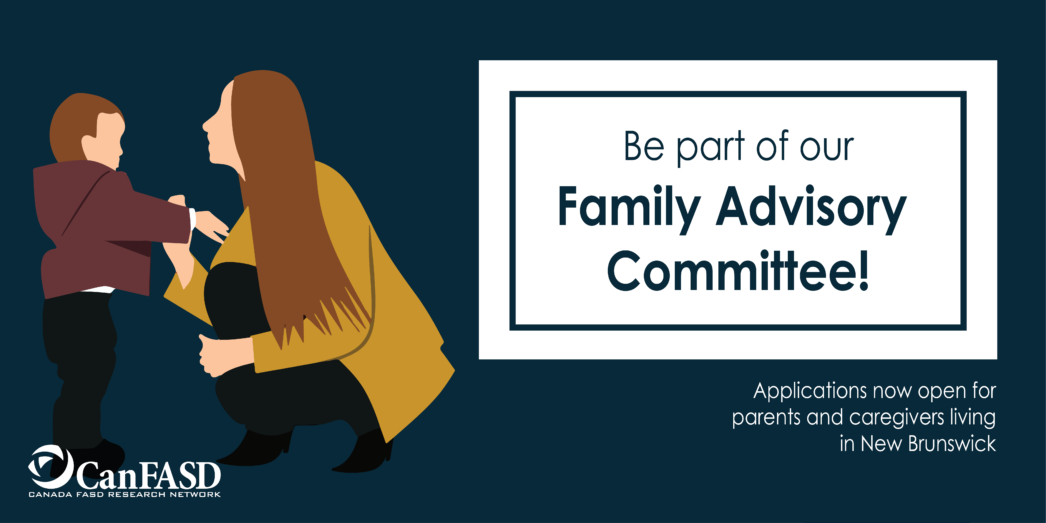We are seeking an individual from British Columbia, the Yukon and the Northwest Territories to become part of the Family Advisory Committee (FAC) team with CanFASD.
Looking for caregivers to join our Family Advisory Committee!
We are looking for people who care for those with FASD from Alberta, Manitoba, and the Yukon to be part of our Family Advisory Committee.
Seeking Yukon Representative for Family Advisory Committee
We’re looking for a caregiver from the Yukon to join our Family Advisory Committee!
Why it is Important to Include the Voice of Families in Research
Sunday May 15th is the International Day of Families. In honour of this celebration, we asked members of our Family Advisory Committee why they believe it is important for families to be included in research on FASD. Here are some of their responses:
Join Our Family Advisory Committee!
We are looking for a caregiver from Saskatchewan to join our incredibly dedicated Family Advisory Committee.
Meet Our AFECT Team
We created the Adult FASD Expert Collaboration Team (AFECT) to make sure the voices of those with FASD are included in the research process.
Be a part of our Family Advisory Committee
We are currently accepting applications from caregivers in New Brunswick to be a part of this committee. If you are interested in joining, please fill out an application form.
What FASD is: a caregiver’s perspective
When asked to write this blog on what FASD means to me, I struggled. FASD is a complicated disability with many challenging aspects. I finally decided that, in my experience, FASD to this point has meant missed opportunities.
What FASD Means to Me
Caregiving has meant making my kids live on their own, knowing that they may fail, but also knowing I needed to keep others safe. Sleeping when I did not know where my child was, praying continually that they would live through the night.
Life with COVID-19 from a Caregivers’ Perspective
We are finally confident that people will understand what we mean when we say life is unpredictable and sometimes feels like it is spiralling out of control. It took a pandemic to have others experience what our lives are like routinely.
- Page 1 of 2
- 1
- 2








